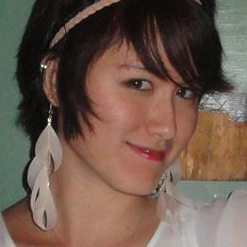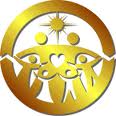…it hopped the last train to the coast, taking relationship
and romance with it.

(Photo: Poetry teaches us how to think about what we feel.
“Rings of the Lord” by Sunhwa and Larry Moffitt)
The thing is, poetry has never ceased to be vital for the human spirit. Poetry, “vitamin P,” is an essential nutrient that mitigates societal floundering by enlarging our capacity to put the world into perspective, to digest woe and be tolerant of the flaws of others, and to relieve stress through the appreciation of beauty. Poetry makes people live more richly, however few and brutal are the actual number of years one is allotted.
“Shall I compare thee to a summer’s day?
Thou art more lovely and more temperate.
Rough winds do shake the darling buds of May…”
That so many of us have let the poetry appreciation gene atrophy in ourselves, impoverishes everyone.
Poetry is an unusual art form in that far more people today write it than actually read it. Here are two things about poetry that I have decided are true: First, poetry is a verbal window to the soul, same as one’s eyes are for the tactile senses. I think that’s understood by anyone who’s read this far. And second, in order to ingest poetry at the visceral level, you have to read it aloud to yourself. And that means slowing yourself down – your breathing, heartbeat, fight-or-flight reflex, toenail growth. Slow to a crawl, way, way down, almost slower than it’s possible to be in this social media world. Modern life has outrun the contemplative pace of poetry, and you need to touch base with your inner Poe.
Poetry matters, but the reason we have stopped making poetry important in our lives is the same reason we have stopped reading “Pride and Prejudice” aloud to the family by candlelight in the evenings. Technology has made us hyper. I wrote this whole post in less time than it took Bill the Bard to grind his ink stick and slit a goose quill, preparatory to “wherefore art thou, Romeo.” Then, zippy-bang, I grab my bagged lunch, kiss whoever’s around and I’m running out the door, launched officeward with a damn tie around my neck as the symbol of my slavery.
I’m onto the next reality, subduing demons at my desk, I word-process a memo. (“Stand back people, this stuff’s mission critical.”)
I rush the finished memo into the office of a Kahuna.
The secretary looks up. “Who goes there, knave?” Smoke rises from the paper as the toner ink reacts to bureaucratic elements in the rarefied executive office atmosphere.
I gaze back through eyes of polished steel. “This memo’s by-god mission critical!”
She backs off. “Awright, give him room people!”
I wrote and delivered that memo, transforming life on Earth as we know it, in less time than it took Lord Byron to pen a note to the milkman. A note that, today, would auction for a million five, by the way.
To help you appreciate poetry, you should meditate on what it takes for the brain to become poetic, by going into that mental space yourself. Get away from ambient sound, turn the lights low, put a paper pad in front of you and a sepia-toned ink pen in your hand – whatever it takes for you to rein it in, Bubba. Then write one. Expel yourself from the modern space-time continuum and into a rhythm we haven’t experienced since gifted orators addressed large crowds without microphones. Say, Lincoln’s speech at Gettysburg, or Johnny in the Jordan baptizing his cousin.
You need poetry, for life’s giant moments – the passing of heroes, or to commemorate battles. But also for those small, rare moments of personal clarity (not counting when you’ve gotten sloppy sentimental from eating five pieces of cognac-laced tiramisú).
You need poetry every day. You need it like you need church. You need it to water the bougainvillea of your boogie wagon, to cool your magma and unfold your brain wrinkles, to cleanse the colon of the troposphere. (The what?)
Anyway, you need it, trust me.
Here are a few emotions with which poetry can help. Just snippets, for flavor. Look these up. Read them all, and more. You can thank me later.
World War One blew Willam Butler Yeats’ mind,
as it did everyone of that time after having seen the entire world destroyed. He wrote “The Second Coming” in 1919, possibly trying to come to terms with the carnage of global suicide.
“The darkness drops again but now I know
That twenty centuries of stony sleep
Were vexed to nightmare by a rocking cradle,
And what rough beast, its hour come round at last,
Slouches towards Bethlehem to be born?”
There is the rage of the beat poet, none angrier than Allen Ginsburg, expressed in “Howl” (unless it’s Maya Angelou). Lock your door and shout the entire poem as loud as you can. Then go burn down the mission.
“I saw the best minds of my generation destroyed by
madness, starving hysterical naked,
dragging themselves through the negro streets at dawn
looking for an angry fix…”
Like Ginsburg and Sylvia Plath, sometimes I can’t decide if I want to see the whole town turned upside down. Or if it already is and I just feel the need to take notes.
Don’t stick your head in the oven.
Read any poem by Plath and then lay down with a cold rag on your forehead.
Keep your tiramisú. I get drunk on Emily Dickinson; I am besotted of my beloved recluse, “the Belle of Amherst.”
“Because I could not stop for Death –
He kindly stopped for me –
The Carriage held but just Ourselves –
And Immortality.”
Yes, Emily. Oh, yes! I’d better stop now. Once I get into Emily, and her “disgraceful” contemporary, Walt Whitman, I will not stop for death or dinner.












